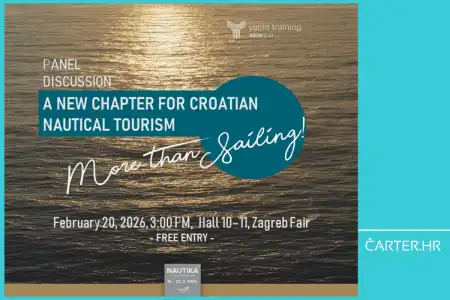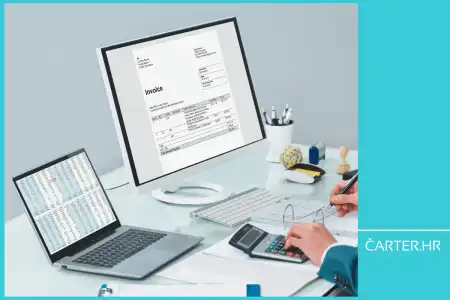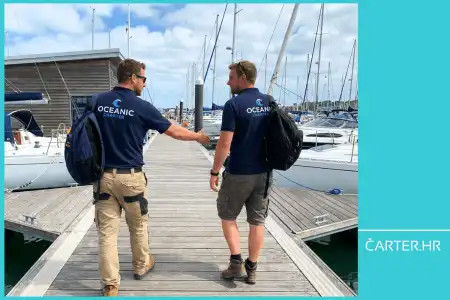
- 25.08.2025.
- News, Regulations, Finances
Fiscalisation 2.0 from 2026 changes the way yacht charter companies will issue and receive invoices. It will no longer be enough to just “issue an invoice”, now everything goes through the fiscal system, from bank transfers to eInvoices with KPD codes. What does this mean for yacht charter, cooperation with agents and working with international partners?
From January 1, 2026, important changes in the fiscalisation system will come into force in Croatia. This is the biggest upgrade of the system since its introduction, and the changes will affect all business entities - regardless of activity or size.
The law formally comes into force on September 1, 2025, and the transitional period until the end of the year is intended for testing and adjustments.
These are the most important novelties brought by Fiscalisation 2.0:
1. Fiscalisation of all invoices to end consumers
Until now, invoices paid in cash, by card and other means were fiscalised. From 2026, the obligation of fiscalisation is extended to all transaction accounts - including those paid via bank account. This means that every invoice to a natural and legal person (regardless of the method of payment) will have to be fiscalised. Fiscalisation also includes invoices paid via transaction accounts and various digital payment services (e.g. PayPal, Google Pay).
2. The choice of an information intermediary (new compared to Fiscalisation 1.0)
In Fiscalisation 1.0 in Croatia, the obligation was to fiscalise invoices through fiscal cash registers and send data directly to the Tax Administration, without the need for an intermediary in the form of an information intermediary.
With Fiscalisation 2.0, there is a shift to complete digitalisation and fiscalisation in the form of eInvoices, where it is necessary for business entities to have a contracted information intermediary. It acts as a technical and security link between the user (company) and the Tax Administration, enabling secure, standardised and automated transfer, fiscalisation and recording of invoices.
3. Mandatory issuance of eInvoices in B2B business
From 1.1.2026. all VAT payers (both companies and crafts) must issue eInvoices when doing business with other companies.
From 1.1.2027. the same will apply to entrepreneurs who are not in the VAT system.
E-Invoices are fiscalised automatically at the time of sending.
4. All business entities must be able to receive an eInvoice
From 2026 every company must have software or a system that enables the receipt and review of eInvoices, even if they do not use them often.
5. New classification of products and services - KPD 2025
For all eInvoices it will be mandatory to use codes from the new classification of products and services - KPD 2025, which replaces the existing codebooks. This means that companies will have to adjust their price lists and catalogues and mark all products and services with the appropriate codes.
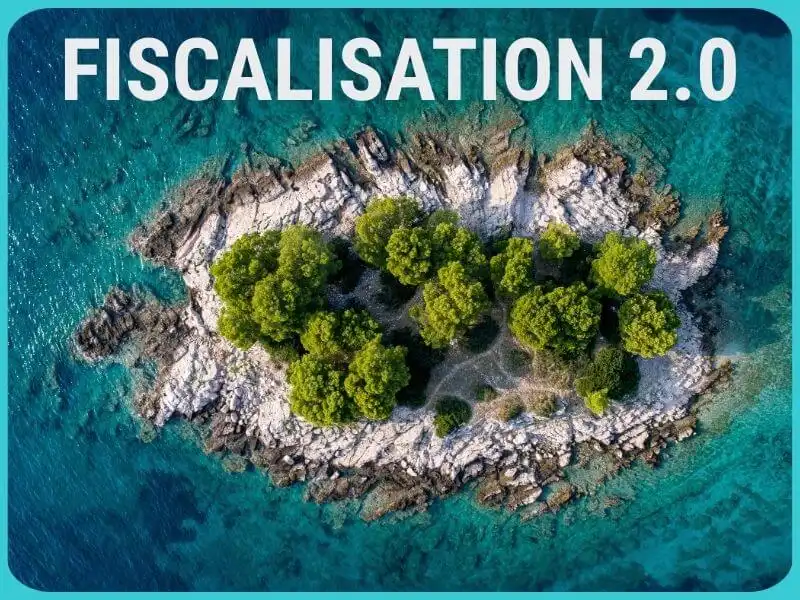
What does the “new” fiscalisation mean for yacht charter companies?
Although it may seem that the changes mostly affect traders and larger systems, the yacht charter industry is not exempt. All yacht charter companies will have to be able to receive eInvoices, and here is what that specifically means:
- All invoices to end guests (both domestic and foreign) - including online payments through the bank - will have to be fiscalised. This means that invoices for yacht charter and other services, paid in advance via a transaction account, will also have to go through the fiscalisation system.
- If you do business with other companies - agents, services, suppliers - you will be required to send eInvoices. You need to prepare in advance for the technical requirements of this process.
- Use of KPD 2025 codes - all products and services must be properly labelled. This applies to yacht charter, but also to additional services.
Exemption from fiscalisation 2.0
There are cases that remain exempt from the new Fiscalisation Act and Fiscalisation 2.0, and these are:
- Issuing B2B invoices with transaction payment method to foreign companies. Foreign companies are business customers from abroad.
- Issuing offers - offers no longer have to be fiscalised in any case.
As for the fiscalisation of invoices with foreigners, it is important to distinguish between the B2C segment (end consumption) and B2B (transactions between entrepreneurs). Fiscalisation of invoices is aimed at invoices to citizens (including foreigners as end consumers).
Such invoices must be fiscalised on the side of the issuer of the invoice, and a confirmation with a unique invoice identifier (JIR) is issued. Fiscalisation of invoices between taxpayers and public authorities refers mainly to business within Croatia.
In practice, invoices issued to foreign persons (foreigners) as end consumers are subject to fiscalisation according to the same rules as for domestic consumers. Invoices in business between entrepreneurs (B2B) with foreign entities are generally not subject to fiscalisation in Croatia because these are cross-border transactions, but it is important to:
- clearly state the details of the partner from abroad on the invoice (address, country, VAT ID or other identifier),
- properly record the invoice in accounting and tax records (VAT, sales ledger, etc.),
- there is no obligation to send eInvoices to foreign partners - you can still send them in PDF, by post or as agreed.
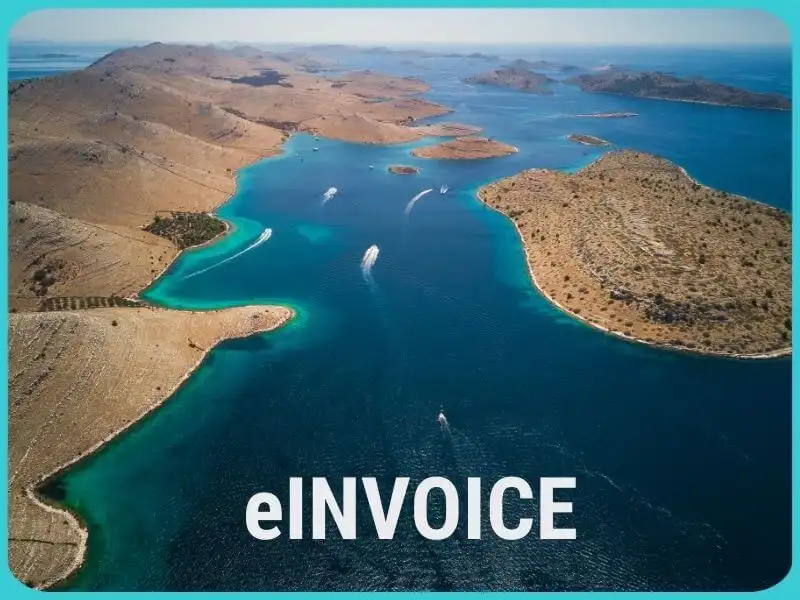
What technical requirements must you meet to receive eInvoices (eRačun)
Several technical requirements must be met to receive eInvoices, which ensure that the business entity can receive, process and archive eInvoices in accordance with legal regulations:
- The technical infrastructure must enable secure connection with the central platform or information intermediary connected to the Tax Administration.
- It is necessary to use digital certificates to establish secure communication and electronic signing of eInvoices (business certificates on a crypto device or application certificates).
eInvoices are received in the standardised UBL 2.1 (XML) format, which enables automated electronic processing and fiscalisation. - The business entity must be registered in the eInvoice system (e.g. through a service such as Fina e-Invoice or moj-e-Invoice), which includes the registration of organisational units if there are several.
- It is necessary to establish an access point through an information intermediary or independent system development that meets the technical specifications for eInvoice exchange.
- It is mandatory to store received eInvoices in an electronic archive in their original form for evidentiary and tax purposes.
- Ensuring interoperability of the communication protocol (web services, API) and compliance with legal rules for exchange, signing and verification of electronic invoices.
For a yacht charter company this means that it must have a technical partner (information intermediary) or its own system that meets these requirements in order to be able to smoothly receive eInvoices from business partners in a legally valid and automatically acceptable way.
The list of information intermediaries connected to the central platform and compliant with the eInvoice standard can be found at this link.
Recommendations for preparation
Fiscalisation 2.0 does not mean only new technology, but also good organisation. That is why it is important to start preparing now, so that by the end of 2025 everything will be ready – both systems and employees.
Here are concrete steps you can take:
1. Check how you are currently issuing and receiving invoices
- Review all types of transactions you carry out - with individuals and with companies.
- Check which payment methods you use (cash, cards, bank transfers).
- Identify which invoices you are currently fiscalising, and which you are not - from 2026 this will no longer be optional.
2. Choose a solution that supports fiscalisation and eInvoices
- If you use software for issuing invoices, check whether it supports automatic fiscalisation of all types of payments and sending eInvoices with KPD 2025 codes.
- Pay attention to the possibility of receiving incoming eInvoices and their archiving.
- If your business involves several people or locations, ensure that all relevant team members have access to the system.
3. Update the price list and services according to KPD 2025
- Every product or service will have to have an assigned code from the new classification.
- For yacht charter companies this includes not only yacht charter, but also all additional services: skipper, hostess, cleaning, additional equipment, and similar.
4. Prepare to receive eInvoices
- This applies even if you are primarily a service provider, because you will receive them from suppliers, services, marinas or marketing agencies.
- Solutions may include service portals, accounting software or integrated ERP systems.
5. Educate employees and coordinate with partners
- Employees who issue invoices must understand the difference between a classic fiscal invoice and an eInvoice, when each is used and how to handle exceptions (e.g. B2B cash payments).
- Communicate with agencies, brokers and service partners about how you will receive and send invoices from 2026, so that there are no delays or mistakes.
Use this “transitional” period for testing. From September to December 2025 you can test the system for fiscalisation of bank payments, sending and receiving eInvoices, product codes and data transfer.
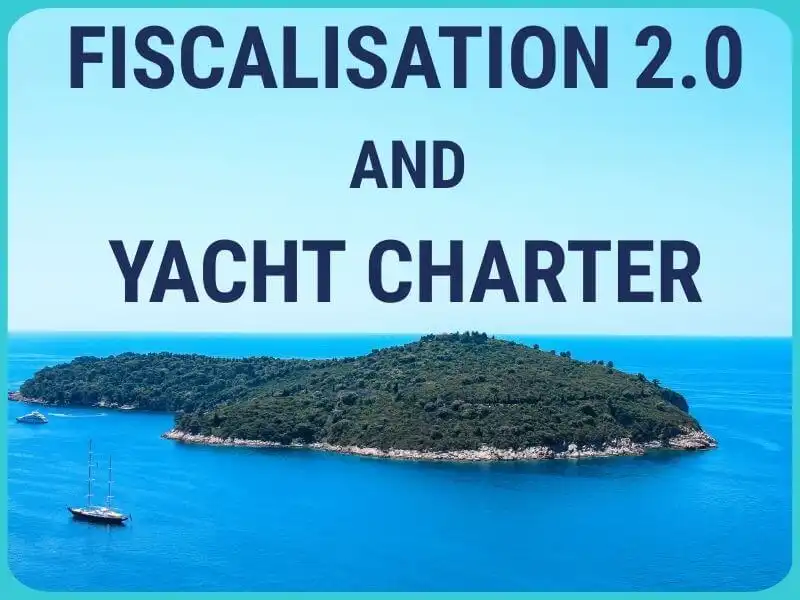
Fiscalisation 2.0 and yacht charter - what to do now
The introduction of Fiscalisation 2.0 brings new rules and obligations, but it is also an important step towards standardised and digitally more efficient business.
These changes are also an opportunity to improve business discipline, and for yacht charter companies this means:
- fewer delays during the season
- faster processing of payments
- simpler handling of invoices and cooperation with agents, services and international partners
By preparing on time, you will also have an advantage over the competition, i.e. clearer documentation, a more professional relationship with guests and a lower risk of mistakes and fines.
The recommendation is to consult in time with an accountant or bookkeeper who follows the regulations and knows how to set up the system properly.
This way you will not only meet legal obligations, but also ensure more stable operations in the coming seasons.
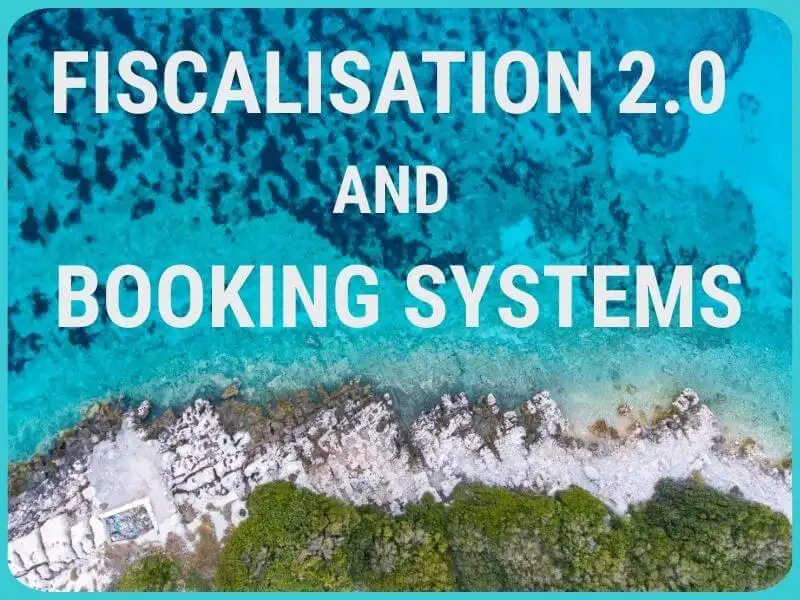
Fiscalisation 2.0 and booking systems
Preparation for Fiscalisation 2.0 does not apply only to accounting software, but also to booking systems used by yacht charter companies. Solution providers are already working on adjustments:
- Booking Manager – users already have the possibility of fiscalisation of transaction accounts within the system. During the autumn the development of a script for exporting invoices into eInvoice (XML format) will be completed, which will enable full compliance with the new legal requirements. An official statement is expected soon, so that clients can prepare on time for the start of the application of the new rules.
- Nausys – according to available information, the system is also being adapted to the requirements of Fiscalisation 2.0. Users will have solutions that will enable them to comply with the new obligations, including fiscalisation of all invoices and support for eInvoices. Accordingly, Nausys has achieved an exclusive partnership with the information intermediary moj eInvoiceand certain benefits on all packages for the exchange and archiving of eInvoices for all its clients. For details, contact the Nausys customer service or directly the moj eInvoice team.
For yacht charter companies this means that they will not have to look for additional tools ‘outside’ – the booking systems they already use will gradually become technically ready for everything required by Fiscalisation 2.0.
If you are not sure how Fiscalisation 2.0 will affect your business or you need help with preparation, contact us, we will direct you to a relevant expert in this field.
Do you want to regularly receive practical information and advice about new rules in the yacht charter industry? Sign up for our newsletter and be among the first to learn all the important news.
Categories of trends
- News
- Sale
- Marketing
- SEO
- Web design
- Social media
- Technology
- Regulations
- Management
- Education
- Finances
- User experience
Newsletter
Sign up for the newsletter and receive the latest trends and tips straight to your inbox


